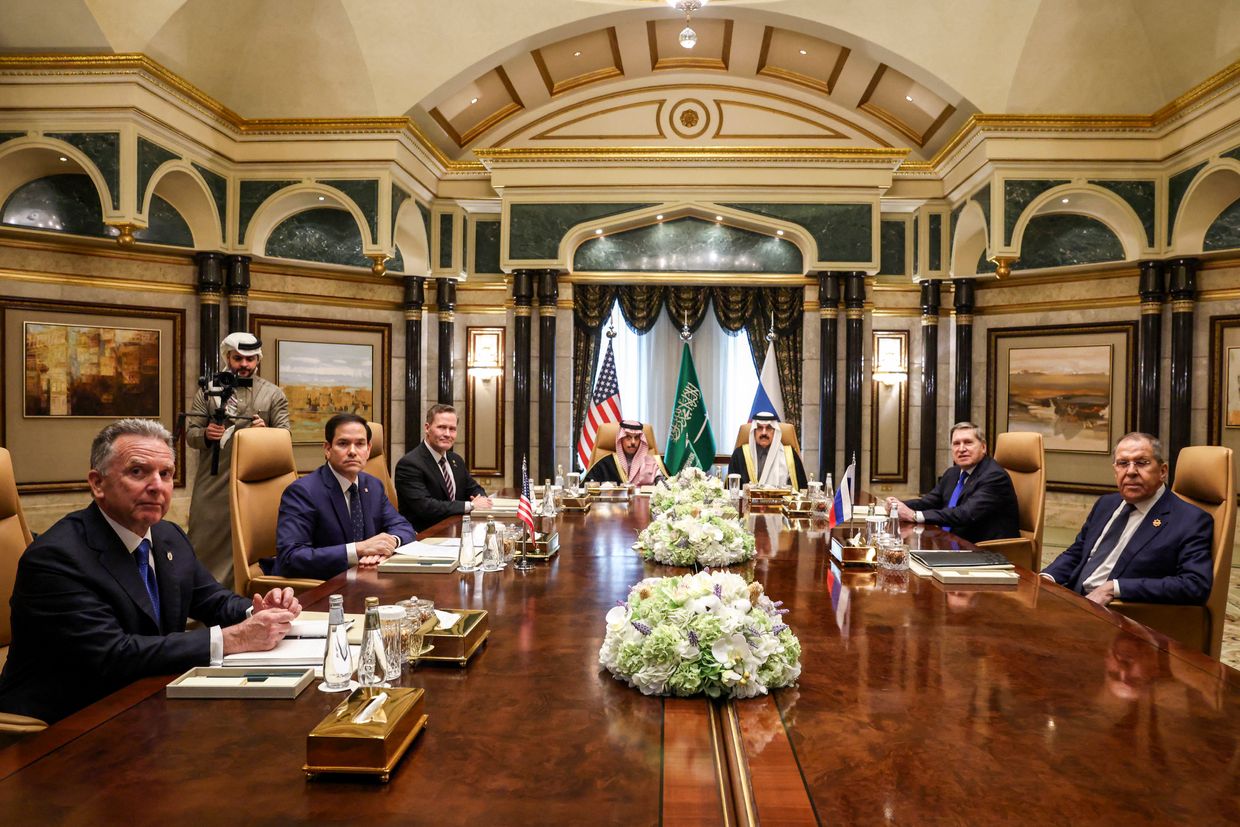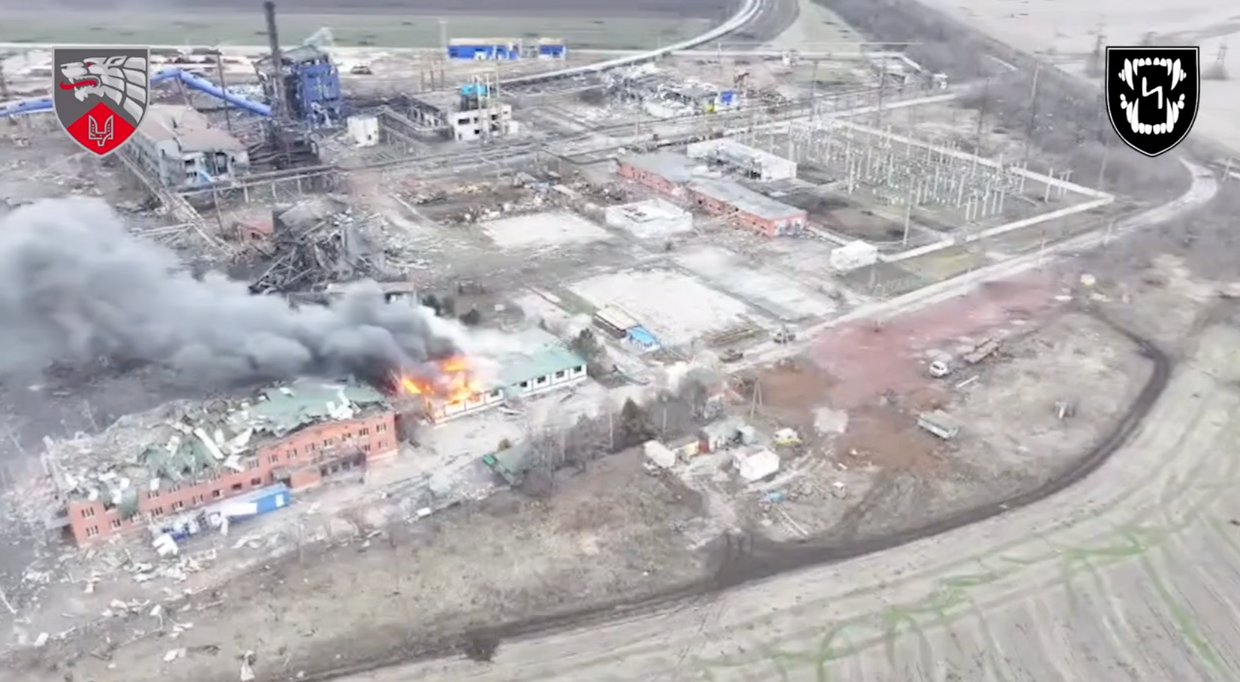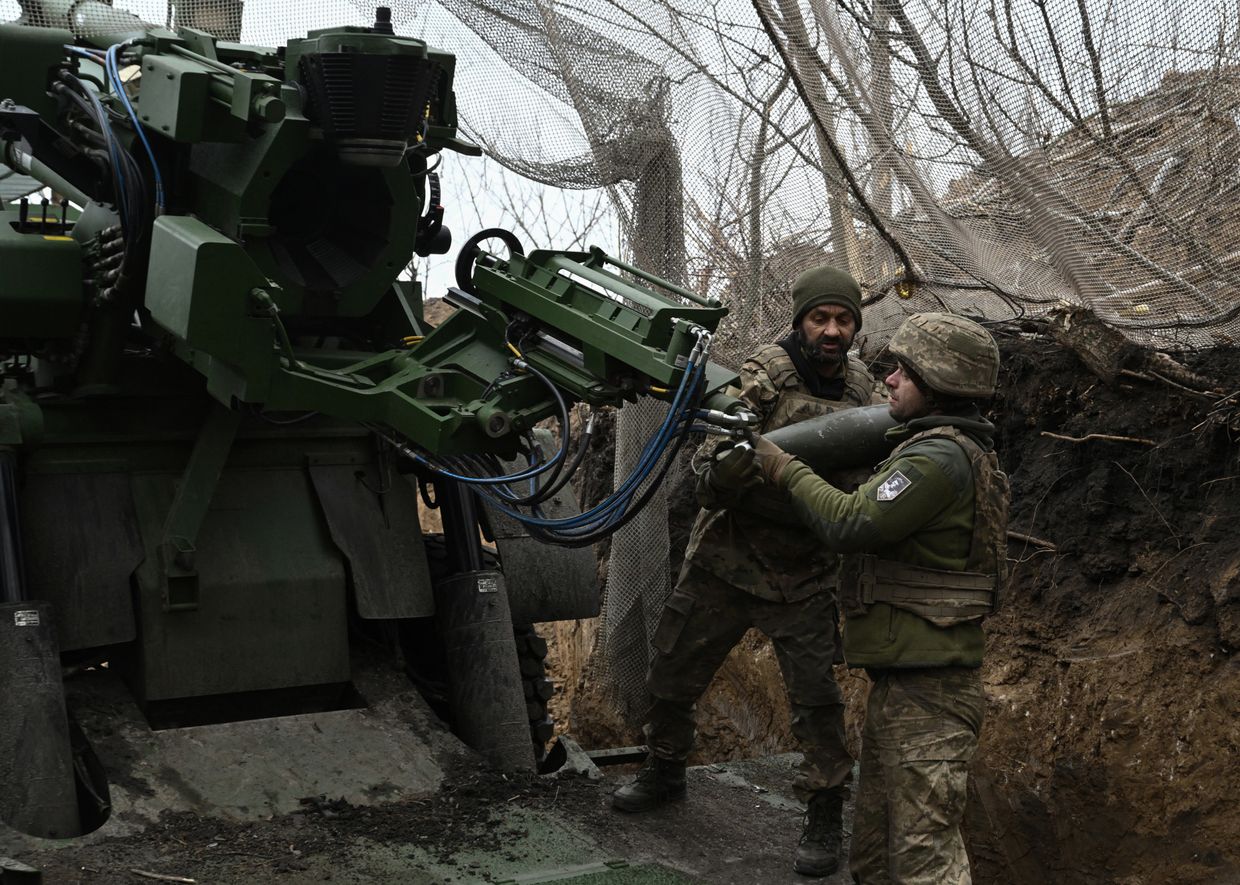Kurt Volker's guide to US-Russia Ukraine peace talks in Saudi Arabia

Ambassador Kurt Volker speaks at the Union International Cultural Center in Odesa, Ukraine, on May 17, 2023. (Nina Lyashonok / Ukrinform / Future Publishing via Getty Images)
After years of political isolation sparked by the full-scale invasion of Ukraine, U.S. and Russian officials will meet in Saudi Arabia this week to discuss how to bring an end to the war.
Neither Ukraine nor Europe has been invited to the main discussion, setting off alarm bells in Kyiv and capitals across the continent that U.S. President Donald Trump and Russian President Vladimir Putin could reach an agreement without Ukraine and Europe’s involvement, and one that puts their future security in jeopardy.
Announcing that Russian Foreign Minister Sergey Lavrov would lead their delegation, the Kremlin set an ambitious agenda for the talks.
"They are expected to hold a meeting with their American counterparts on Tuesday, which will focus primarily on restoring the entire complex of Russian-American relations," Kremlin spokesman Dmitry Peskov said on Feb. 17.
The U.S. delegation will be led by State Secretary Marco Rubio, National Security Adviser Mike Waltz, and Middle East envoy Steve Witkoff.
Though the U.S. and Russia will meet without Ukraine, President Volodymyr Zelensky will also head to Saudi Arabia this week. NBC reported that the intention is for the U.S. to host a bilateral meeting with Russia, followed by a bilateral meeting with Ukraine, and culminating with talks together.
Meanwhile, such is the sense of urgency in Europe over the course of events: European leaders are gathering in Paris on Feb. 17 for an emergency summit.
So what should we expect from the historic meeting in Saudi Arabia and is the direction of peace negotiations as alarming as many believe?
The Kyiv Independent asked co-chair of the BGR Group advisory board, Ambassador Kurt Volker, who served as the U.S. special representative for Ukraine negotiations in 2017-2019, and U.S. ambassador to NATO in 2008-2009, for his thoughts.
The Kyiv Independent: There has been a lot of panic in Ukraine and Europe about the possibility of the U.S. and Russia negotiating a peace agreement over their heads — is this justified?
Ambassador Kurt Volker: People were upset about (being excluded from the table) and I have to keep telling people there isn't a table.
There is (U.S.) President Trump picking up the phone, calling Putin, calling Zelensky, people having meetings at NATO, people having meetings in Munich. It's going to be like that. It's going to be a lot of consultation, a lot of conversations, but there's no single negotiation going on.

In fact, we don't even know if it's going to be possible with Russia.
I think there are several things going on and a lot of it is being misread, but there are some things to be watching as well. First off, as we knew, President Trump was going to reach out to Putin in order to try to urge him to end the war, and he's followed that up now by sending a team to meet with the Russians in Saudi Arabia.
I think there was a lot of media excitement over different comments that different people said in the past week, and I think some of them were maybe just not careful enough and the media ran with it.
For example, when (U.S. Defense Secretary) Pete Hegseth at the NATO meeting said that it's not realistic for Ukraine to take its territory back (to the 2014 borders), that's not that different from what President Zelensky was saying in January about not being able to take the territory back militarily, but having to pursue that by other means, provided there were security guarantees for the rest of Ukraine. That's not that different.
Similarly with NATO, (Trump) said it's not realistic to think that NATO membership would be a result of these negotiations, which I think is absolutely right, because Russia would not agree to that, and we shouldn't even be talking to Russia about that. That's none of their business.
I think those comments were blown out of proportion a bit.
The Kyiv Independent: The meeting between the U.S. and Russia has been talked about as if it's the first stage of negotiations, but is it perhaps more the U.S. testing the waters and seeing what Russia has to offer and how receptive they might be to things?
Ambassador Kurt Volker: It’s a great question because I know what Russia's going to do. Russia's going to show up and put out all of these issues about a global strategic agenda and all these things that they want, and try to blur the picture as much as possible.
And I would hope that what the U.S. will do is put all that to one side and say 'Yeah, we can get there, but first you have to stop the war in Ukraine. Stop the fighting and then we can talk about if there's any scope for other things.’
I hope they have the clarity to do that, but I'm not sure where they are right now. They may just be in listening mode to say 'Okay, what is it that Russia is saying and is there scope for ending the war, and is anything they're talking about reasonable or of interest to the U.S.?’
They may just be in listening mode and then will come back and report to Trump. It's really very hard to say at this stage.
The Kyiv Independent: What does Europe need to be doing this week? Do they need to assume that the U.S. has stepped out and assume a much bigger role? Or do they need to sit back and wait and see how this week pans out as well?
Ambassador Kurt Volker: This is an interesting thing. I'm very glad the Europeans are meeting in Paris and talking about what contributions they can make to a peace settlement in Ukraine, to security guarantees, to perhaps a European troop presence.
It's exactly the kind of thing that they should be doing. It's a shame that they're doing it out of anger and fear because they think that Trump is abandoning them. They should be doing it in order to be constructive, to say 'We want to see peace and security for Ukraine. Here's what we can do. Here's what we want to do to work with the U.S. to bring this about.'
So I think they're getting to this point for some of the wrong reasons. But if they get to that point and actually have a concept of what to do, that would be a good thing.
The Kyiv Independent: How concerned should Ukrainians be about the direction things have been heading in recent days?
Ambassador Kurt Volker: I don't think they should overreact or be overly concerned. In fact, I thought that President Zelensky in Munich could have been suggesting things more proactively rather than reacting somewhat bitterly or negatively to the atmosphere in Munich and to President Trump.

We have strong bipartisan support for Ukraine in the Congress. People are already putting forward legislation on how to be able to continue supporting Ukraine militarily through a Lend-Lease program. The dynamics are going to be first seeing whether there's any scope of possibly ending the war with Russia.
And if not, Trump has already said he's going to increase sanctions and be prepared to increase pressure. So there's a long way to go. And I wouldn't overreact in the short term or assume the worst.
This is the first time we've had any effort and momentum into ending the conflict in three years. We have to see where it goes.













